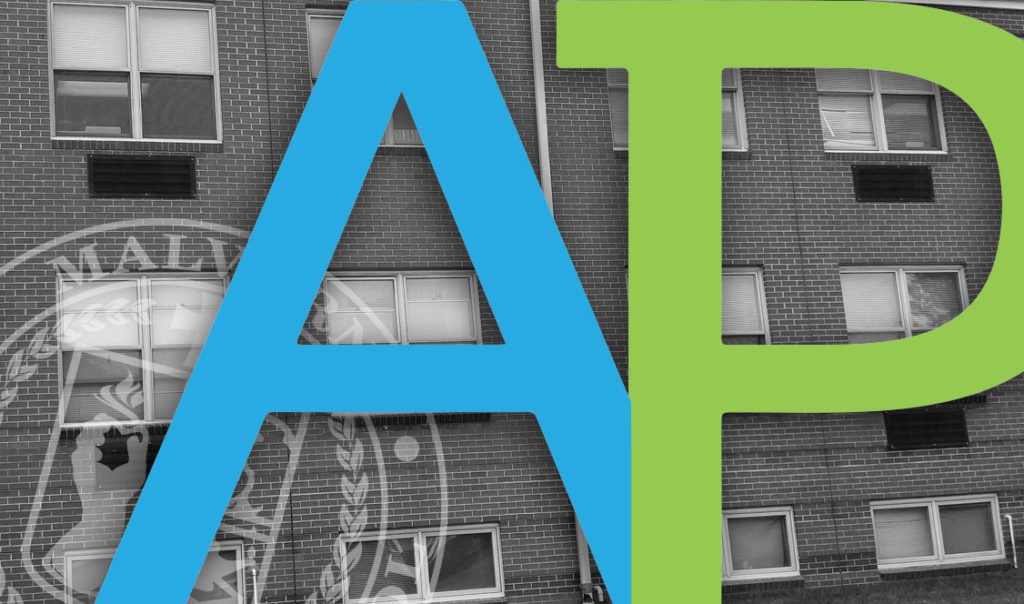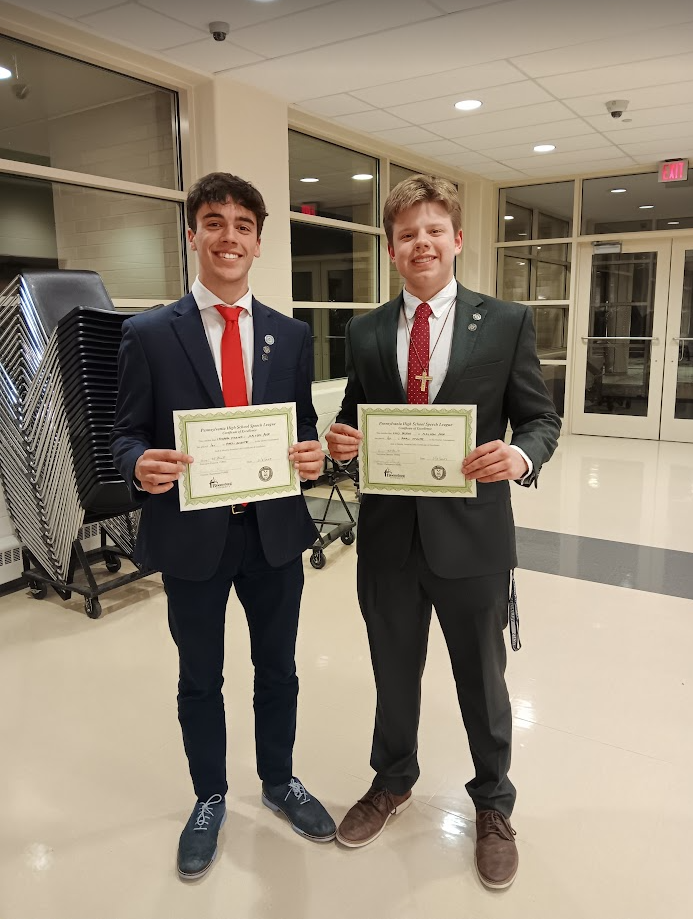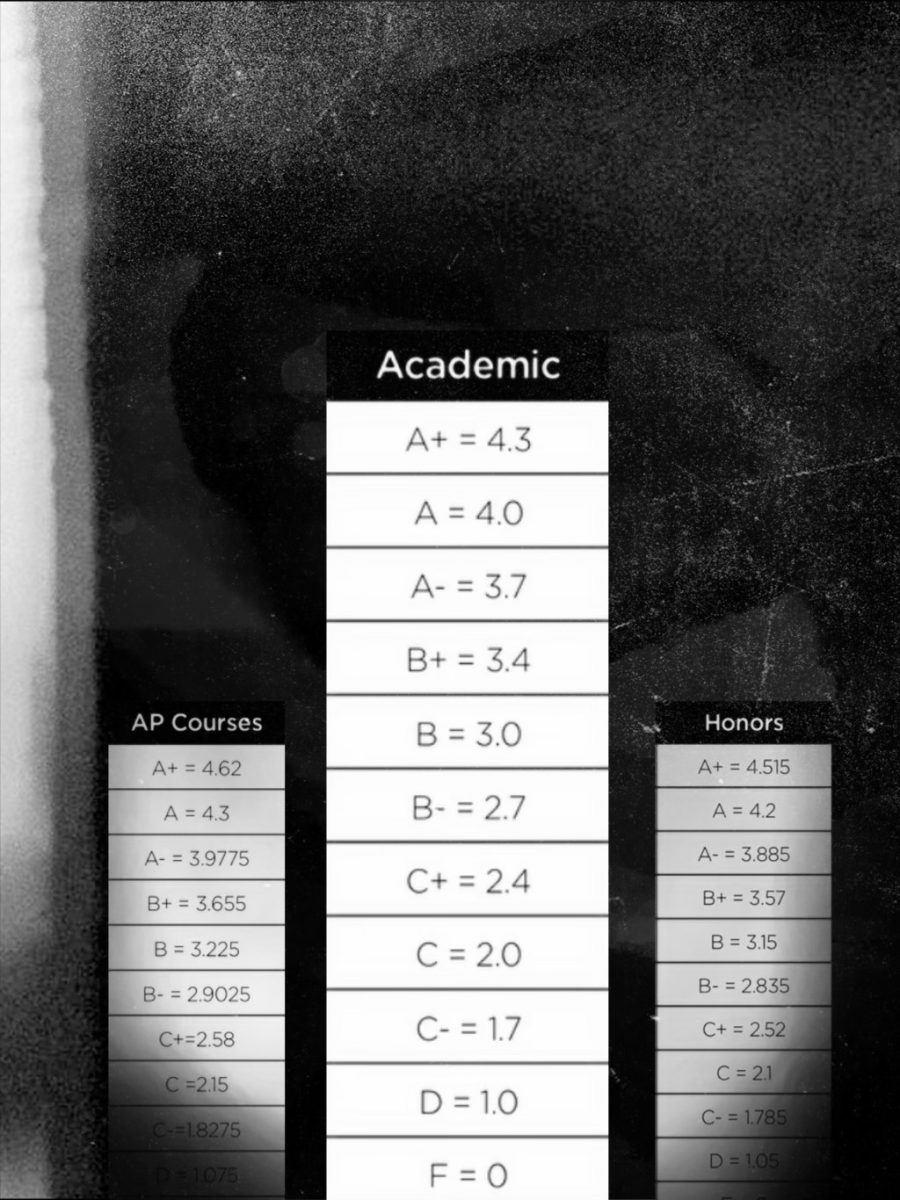For now, most current Advanced Placement policies will carry over to the next school year—but the AP U.S. History course ends at Malvern in 2019.
Students who are taking three or more APs will still be able to drop the number of tests they take to two in 2018-2019. However, the current AP U.S. History course will not exist after next year.
“We have found that in looking at other peer schools they do U.S. history in one year rather than two. When you do this over two years, it limits the type of history you can otherwise have access to because now you are scheduling yourself for a two-year look at U.S. history,” Assistant Head of School for Academics Mr. Patrick Sillup said.
This argument has led the decision to change the U.S. history program from the two year experience it has been to a one year survey course.
“Pushing it into one year in sophomore year opens up other histories and more options. So it would look different in that it would shrink to a one year approach as opposed to a two-year approach,” he said.
However, this year’s sophomores who have decided to take AP U.S. History will still be able to take the class because they have already taken a one year class featuring the first half of U.S. History. Rising sophomores will be the first ones truly affected.
The sole AP U.S. History teacher Mr. Bob Colameco found out about this around Christmas. He thinks that there are significant reasons in favor of and against the decision.
“We as a department have always tried to figure out what we could do to broaden our course offerings. One of the things to do is to make U.S. history a one year course. That’s what’s called a survey course—beginning to end in one year,” he said.
Some problems he pointed out involve preparation for those who want to pursue the possibility of taking the AP test and simply finding a teacher for the course.
“On the AP level, we’ve never wanted to do that because we think it’s so much material. It’s also difficult to find someone who’s willing to teach it because it is so much material,” Colameco said. “So they thought the best thing to do might be to just eliminate it. It’s trying to kill two birds with one stone. It would open up the course schedule.”
Colameco feels split on the decision to eliminate the course. “I have always been in favor of broadening the course appeal and the course offerings. By the same token, I do think there is a lot of value to the AP history class… To be honest, I have mixed feelings,” he said.
However, Colameco is glad that the option for taking the AP test will still be available for those seeking it.
“I think there will be a distinction in the tenth grade survey course between what we are calling a regular course and an advanced course,” he said. “Those students in the advanced course will have the option of meeting with somebody, I suspect me, to practice or get some guidance if they want to take the AP exam. This is because you don’t have to take an AP course to take the AP exam.”
While this is the biggest foreseeable change as of now, other changes may be instituted in the future, according to Sillup. In November, The Friar’s Lantern reported that all but five of Malvern’s AP offerings reported 2017 scores that were below the national average.
Sillup has been trying to account for student opinion regarding APs.
“AP tests are not cheap. If someone is saying ‘I know this university is not going to accept this test, then why do I need to take this external test that I may not be able to use?’ You can counter that and say, well you have worked really hard and earned this right to take it, and hey, you might transfer to a college that might take it so you could always use it,” Sillup said. “That’s been a lot of the source of this—how do we best meet the students needs from a policy perspective?”
Sometimes the student might want to take the test, but not feel ready for the AP exam for multiple reasons.
[perfectpullquote align=”right” bordertop=”false” cite=”” link=”” color=”” class=”” size=””]
“They thought the best thing to do might be to just eliminate it. It’s trying to kill two birds with one stone. It would open up the course schedule.”
-Mr. Bob Colameco
[/perfectpullquote]
“I went all out on all of them,” junior Anthony Papa said. “The only one I actually did not take was the AP Latin exam because we finished really far behind in material, so I feel like it wouldn’t be worth the effort to try and make up all the work when I had the other APs.”
Teachers understand the amount of work needed to study.
“I think it worked out really well since most of the teachers knew that this is the two weeks for AP, so they kind of backed off a little bit. The only homework I had was AP stuff. The teachers give homework, but it’s more optional,” Papa said.
AP AB and BC Calculus teacher Mr. Tom Pannulla said sees a difference in student motivation for his AP classes.
“Students sign up for APs either for a GPA bump or making their transcript a little better, which is fine and that helps for sure,” Pannulla said. “But if you’re going to take the exam and it doesn’t matter to you, then kids are just taking it to get out of something they don’t have to do.”
Pannulla noted that some students may not try on AP exams because their college of choice does not accept AP scores. “But there is always a chance that the immediate school you are going to next year won’t be the school you are going to in two years or three years,” he said.







